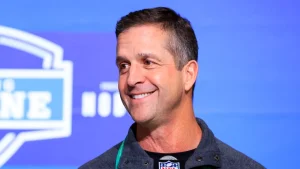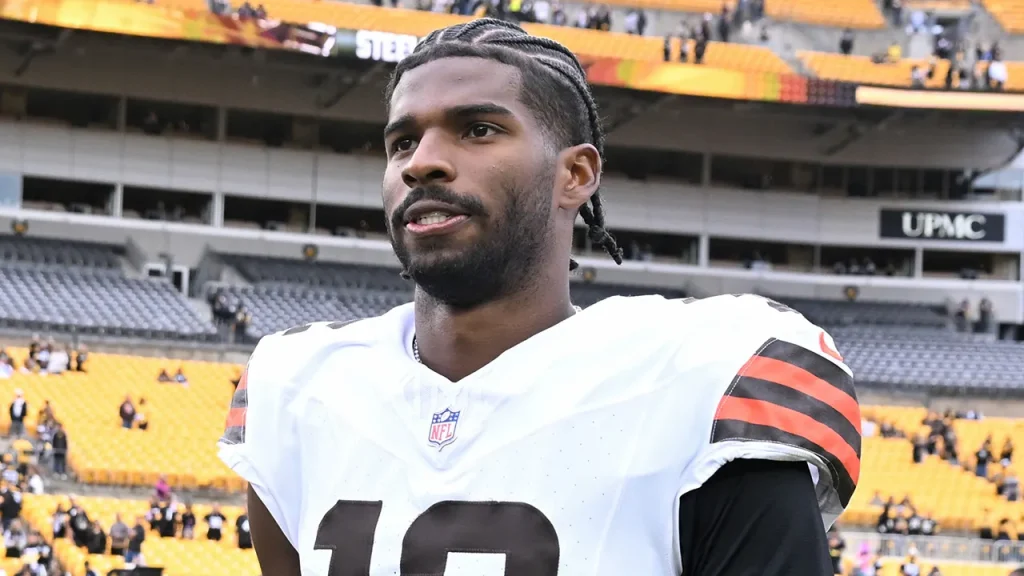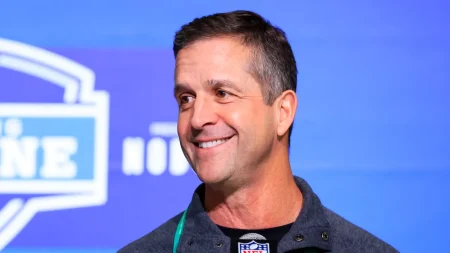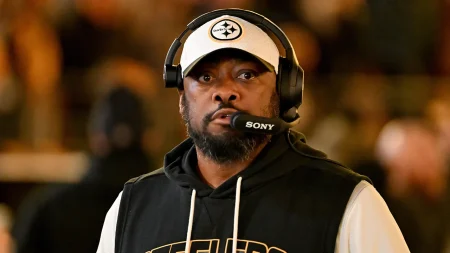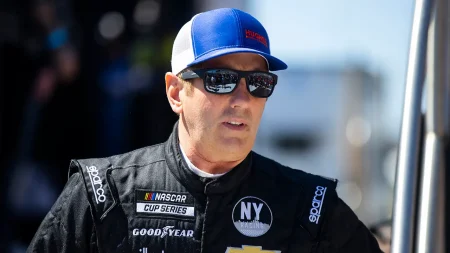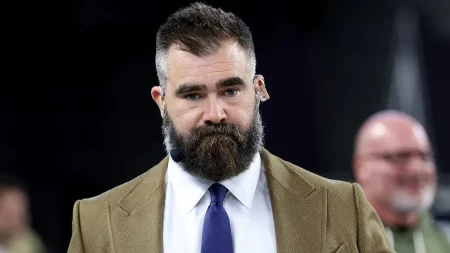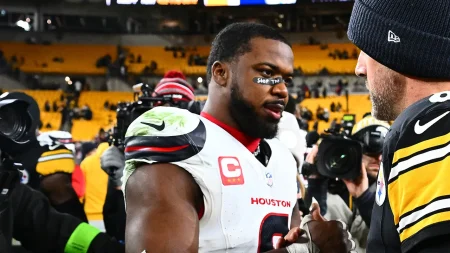Shedeur Sanders: The Browns’ Curious Quarterback Situation
In the midst of a dismal 2-6 season, the Cleveland Browns find themselves at a crossroads with their quarterback situation. Rookie Shedeur Sanders, once rated as a potential late first-round draft pick and son of NFL legend Deion Sanders, remains curiously anchored to the bench despite the team’s ongoing struggles. Initially listed as the third-string quarterback to begin his NFL journey, Sanders has moved up to the backup position behind Dillon Gabriel following Joe Flacco’s trade to the Cincinnati Bengals in early October. Yet, even as Gabriel struggles—throwing two interceptions in a blowout loss to the New England Patriots in Week 8—the Browns’ coaching staff and management appear steadfast in their decision to keep Sanders sidelined, raising questions about what’s really happening behind closed doors.
This reluctance to give Sanders playing time has sparked considerable debate among fans and media alike, with Cleveland-based ESPN Radio host Tony Rizzo vocally leading the charge for change. “What is going on behind the scenes? How can this kid that was rated as a late first-round draft pick not get on a field for a team that sucks?!” Rizzo passionately questioned on air. His frustration echoes that of many Browns supporters who see a team in free fall, losing three of their last four games, yet unwilling to try a different approach at the quarterback position. Rizzo didn’t mince words when placing blame, suggesting that head coach Kevin Stefanski “might have to answer for that, and it might come at the end of the year, and it might come in the form of firing him.”
The situation becomes even more perplexing when considering Sanders’ pedigree and potential. As a standout performer at Colorado under the coaching of his father, Deion Sanders, Shedeur demonstrated the skills and football intelligence that made him an intriguing NFL prospect. Rizzo’s pointed speculation—”Clearly, someone doesn’t like him”—hints at possible interpersonal dynamics affecting Sanders’ opportunities. Alternatively, the host wondered about preparedness: “How are you not ready to play? He’s been here since April. I find it hard to believe that that kid isn’t ready to play.” These comments reflect a growing suspicion among Browns observers that factors beyond pure football evaluation might be influencing the decision to keep Sanders off the field.
Adding another layer to this quarterback conundrum is Sanders’ health status. According to the Cleveland Plain Dealer, the rookie was listed as a limited participant in Wednesday’s practice as he continues to deal with a back injury. This physical setback could partially explain his absence from game action, though the timing and severity of the injury remain somewhat unclear to the public. Sanders did make appearances in two preseason games, offering brief glimpses of his abilities at the professional level, but these limited showings have only intensified curiosity about what he might bring to a struggling offense in regular season competition.
The Browns’ quarterback situation exists within the larger context of a franchise that has historically struggled to find stability at the position. Since their return to the NFL in 1999, Cleveland has cycled through dozens of starting quarterbacks in a perpetual search for consistency and excellence. This organizational pattern makes the current handling of Sanders all the more fascinating—is this a case of patient development of a young talent, or another example of the Browns mismanaging quarterback assets? With each passing week and mounting loss, the pressure to give Sanders an opportunity grows, especially if Gabriel continues to struggle against upcoming opponents.
As the Browns prepare to visit the New York Jets this Sunday, questions about Sanders’ role and future with the team persist without clear answers. The organization finds itself at a familiar crossroads: stick with the current plan despite disappointing results or make a bold change that could either jumpstart a turnaround or confirm their struggles. For Sanders himself, this situation represents a challenging start to his NFL career—waiting for an opportunity while navigating both recovery from injury and the complex dynamics of a struggling franchise. Whether he’ll get his chance to lead the Browns offense this season remains to be seen, but one thing is certain: in Cleveland, quarterback controversies are as much a part of autumn as the changing leaves along Lake Erie.
